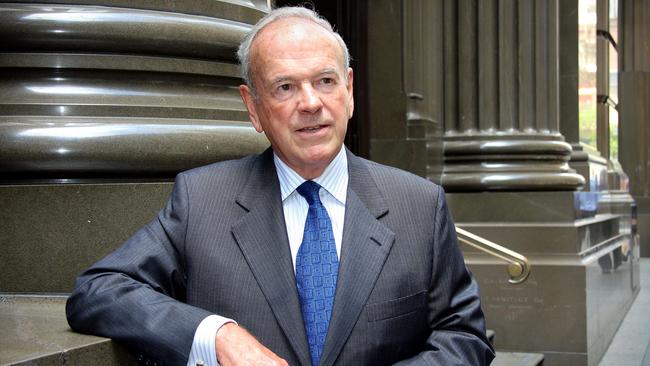Queen’s Birthday Honours: Mirvac pioneer Bob Hamilton has a taste for quality
For Mirvac co-founder and former chief executive Bob Hamilton, the work continues.

Work continues at 82 for Mirvac co-founder and former chief executive Bob Hamilton, awarded an AM for significant service to the property development sector and urban renewal.
Not that he minds. It’s normally just the company that he spent 33 years leading calling to bounce ideas off him about their latest projects.
And they have good reasons to do so. Hamilton was a leader in transforming the property industry, taking it from low-grade developments in the 1960s to the top-quality Mirvac apartments that still resonate almost 50 years later.
Most would be happy with that but Hamilton also gave back with service on state development bodies after Mirvac and kept his hand in the industry with long-time financial adviser Dennis Broit.
His famed principle of bringing the best-designed product to market guides him but he admits he never dreamt Mirvac would grow to its present heights.
Hamilton started out wanting to build a company that was ethical and did developments to the highest possible standards at a time when only Lendlease really stood out. He brims with pride that his company now has a market capitalisation about $3bn higher than Lendlease’s and says that current chief Susan Lloyd-Hurwitz has taken the company to a new level by pushing more into commercial developments and funds.
Mirvac was headed in this direction under his stewardship but he enjoyed apartment development even more. Hamilton’s push to start Mirvac grew out of frustration with what he observed running his own property company, Hamilton & Co Real estate, and he condemns the poor standards of the industry in the 1960s.
He spent almost a decade talking with buyers, working out what they really wanted, and Mirvac was about delivering it. He still believes the best residential people come from either marketing or architectural backgrounds because they appreciate both good design and functional plans.
“Quality is so important because people come back and do business with you again,” he says. This ultimately saves money because buyers become repeat customers. “It proves if you do quality development it’s worthwhile,” he says.
He warns of a return to poor practices on the fringes of the development industry. “Unfortunately in the last 10 years a lot of people who called themselves developers have come in and done a building and don’t care too much about the quality,” he says.
Hamilton worries that this crop of projects is really grim. But he is cautious about the current approach being taken to prevent it. He says planning systems are encouraging a tick-the-box approach by councils and warns that this isn’t designing homes that people want to live in.
He says these systems are making developers contort their plans in order to comply with rules. People in councils and planners are very concerned with what buildings look like, Hamilton says, but what is really important is their design and internal layout to help people live and work. “It’s all in the detail – that’s what makes the difference,” he says.






To join the conversation, please log in. Don't have an account? Register
Join the conversation, you are commenting as Logout